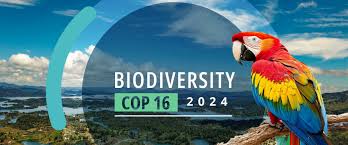Connecting science and policy: EU-funded biodiversity projects at COP 16

Discover the EU-funded projects contributing the biodiversity preservation dialogue at the conference in Cali, Colombia.
This year’s Conference of the Parties to the Convention on Biological Diversity (COP16) will take place in Cali, Colombia, from 21 October to 1 November 2024. One of the main objectives for the governments is to review the state of implementation of the Kunming-Montreal Global Biodiversity Framework (KM-GBF), adopted in 2022 with tangible goals and targets.
Negotiated at COP 15, the Framework sets out an ambitious pathway to achieve the global vision of a world where people coexist amicably with nature by 2050.
The EU Pavilion at COP 16
At the heart of COP 16, the EU Pavilion will strengthen Europe’s commitment to reversing biodiversity loss, preserving ecosystems, and ensuring a sustainable future for all. Key EU-funded projects managed by the European Research Executive Agency (REA) will be present at the event in Cali, showcasing important scientific results to support ambitious policy decisions.
Nature-based solutions for socio-environmental issues that lead to nature-positive economy
The EU-funded NetworkNature+ is a community builder and resource centre that creates funding opportunities for local, regional and international cooperation to maximise the impact and spread of nature-based solutions (NbS). It supports sustainable, cost-effective and multipurpose solutions for a competitive and greener economy.
At the very core of the project is improving the state of nature and the ecosystem services it provides, fully recognising that it requires transformative change in our society. A key concept of the project’s work is also the nature-positive economy that portrays a system in which businesses, governments and other stakeholders take action to reduce and remove the drivers and pressures fueling the degradation of nature.
NetworkNature+ will participate in several sessions at COP 16 to discuss the driving forces of transformation, namely strategic multi-level governance, the transition to a nature-positive economy with nature-based solutions, and the necessary financing for biodiversity.

